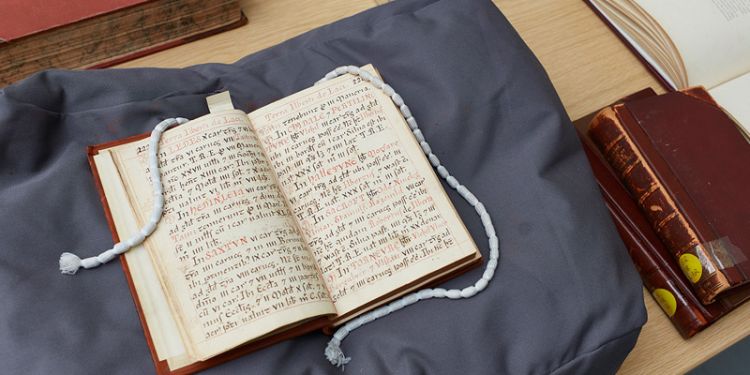Modernist and Medievalist PhD Workshop Success

A highly successful workshop was recently held as part of the 'Marginalisation and the Law' White Rose project, involving both medievalist and modernist participants.
The workshop, for postgraduate researchers, aimed to bring modernists and medievalists into dialogue on the theme of marginalisation and inclusivity. The workshop encouraged reflection on historical sources and methodologies over pizza and snacks. After a round of academic speed-dating, the workshop focused on group work and informal presentations, encouraging networking and discussion.
The workshop was part of the White Rose University Consortium project 'Marginalisation and the Law: Medieval and Modern'. Bringing together four historians with expertise on medieval law and two scholars of contemporary socio-legal theory, the project examines key elements that have underpinned the processes of marginalisation in the medieval and modern periods. The expertise of the medievalists ranges broadly, from AD 600-1500 and over Western Europe, Byzantium, and the Islamic world. The law scholars specialise in the relationship of the law to gender, sexuality, mental health, and criminal offending from the Victorian period to the present day.
Maroula Perisanidi (Leverhulme Early Career Fellow) is the Lead Academic for the White Rose project at the University of Leeds, and organised this event with support from IMS postgraduate researchers Victoria Yuskaitis and Kayla Kemhadjian.
Workshop Programme
A total of twelve PhD students, evenly split between modernists and medievalists, attended. Dr Siobhan Hearne (Leverhulme Early Career Fellow, Durham University) and Maroula Perisanidi opened the event by discussing their experiences as PhD students and early career researchers, focusing especially on how their different research areas proved beneficial for academic collaboration.
After this introduction, the event began with an academic speed-dating exercise, where all members of the workshop briefly introduced their research and searched for connections between modernist and medievalist topics, methodologies, and approaches.
Emily Webb (PhD student, School of History) described this part of the workshop as 'tremendously fun and interesting...Learning about the variety of research occurring within the School of History and Institute for Medieval Studies (IMS) made me feel extremely proud to be part of such an exciting research community!' Mark Shearwood (PhD student, School of History) agreed: 'Having to give a three-minute synopsis of my research area several times and then link it with other research areas allowed me to re-contextualise the broad topics and themes of my research'.
During the pizza break after speed-dating, researchers continued to network in an informal setting, while Hearne and Perisanidi evaluated the combatability of pairs of researchers based on speed-dating scores.
All participants were then paired with another researcher from outside of their research area, in medievalist and modernist pairs. Each pair discussed commonalities of their research, and the event concluded with all pairs giving a short informal presentation to the wider group about research topics, methodologies, or contexts that they had found in common.
PhD Responses
Overall the response to the event is overwhelmingly positive. As Elisabeth Trischler (postgraduate researcher, IMS) stated, 'The workshop encouraged us to look beyond our normal frameworks and consider various themes that could apply to both modern and medieval scholarship'. She described the environment as 'fun and friendly', and stressed how the event also 'provided the opportunity to discuss potential collaborative projects'.
Jacopo Pili (postgraduate researcher, School of History) agreed, calling the event 'genuinely fun'. Pili also 'loved learning more about some fields other than mine' and was impressed that 'even with researchers whose focus was quite different from mine, it was always possible to find commonalities in how they live their PhD experience'.
Lek Chan (postgraduate researcher, IMS) described the workshop as 'very useful', and said he was 'particularly inspired by our discusson on methodologies and the differences between medieval and modern historical evidence'.
All participants expressed interest in further future collaboration with medievalist and modernist researchers.
Webb also wrote a blog post titled 'PhD Workshop: Modern & Medieval Collaborations' for Marginal Identities, the blog that highlights past and future talks on marginalisation in history and law, in the context of the White Rose project.




